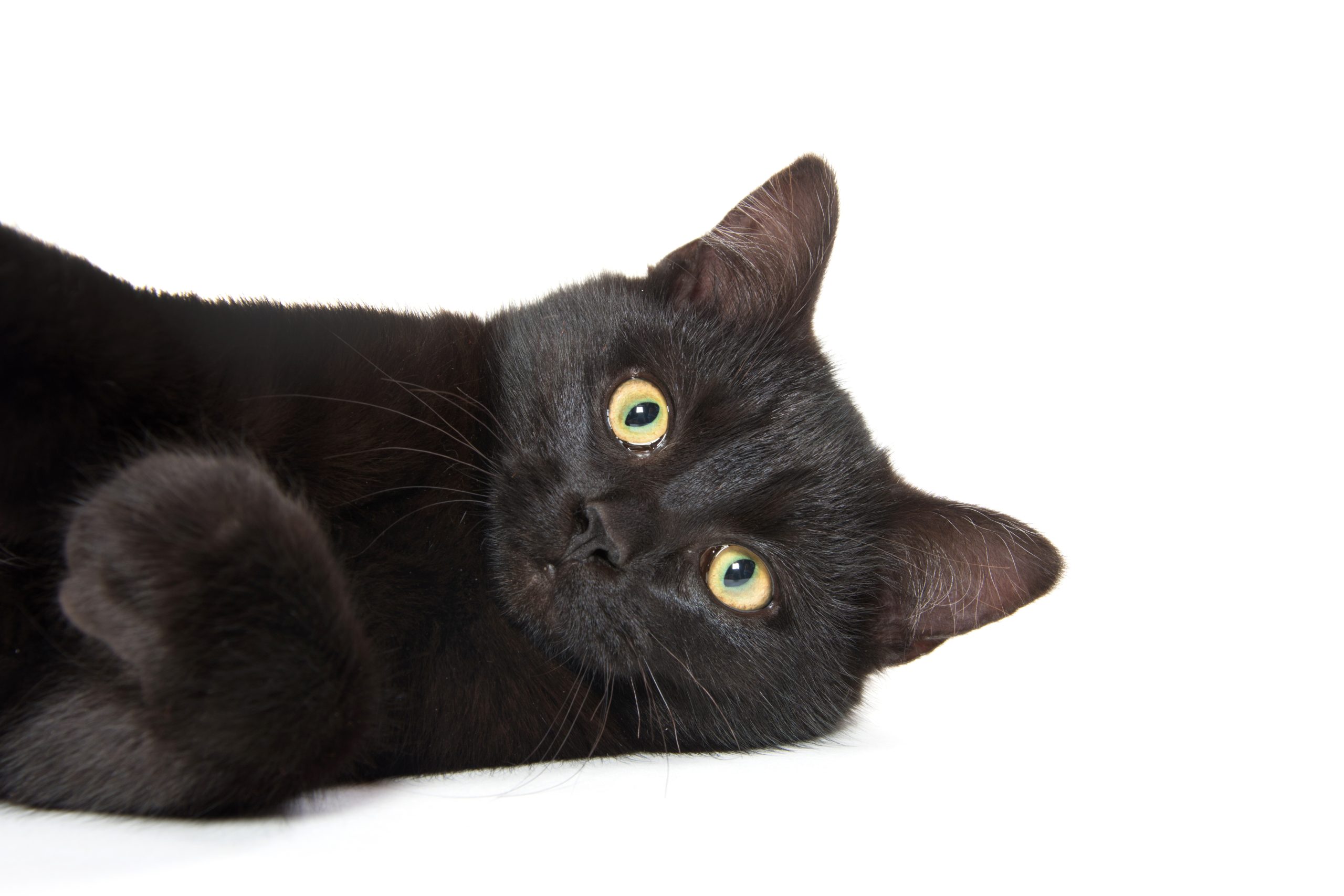Black Cats: Symbols, Superstitions, and Science

Black cats have been a source of fascination for centuries, appearing in folklore, superstitions, and cultural symbols worldwide. Often shrouded in mystery and misunderstanding, these enchanting felines carry a wealth of meanings that vary dramatically depending on the cultural context. In some cultures, they are revered and considered good luck, while in others, they are viewed with suspicion and linked to ominous superstitions.
This blog post explores the rich tapestry of beliefs surrounding black cats, delving into their historical significance and the superstitions that have shaped their image. We’ll also uncover the scientific aspects behind their distinctive black fur and the genetic advantages it provides. By dispelling myths and presenting facts, we aim to foster a deeper appreciation and understanding of these elegant creatures. Whether you’re a seasoned cat lover or simply curious, join us as we explore the symbols, superstitions, and science of black cats.
Historical Significance and Symbols
Throughout history, black cats have held diverse symbolic meanings in various societies. In ancient Egypt, for instance, black cats were revered and associated with the goddess Bastet, who embodied home, fertility, and protection. Killing a black cat was considered a grave sin, and these felines were often kept as sacred pets.
Contrastingly, during the Middle Ages in Europe, black cats became linked with omens and witchcraft. They were often thought to be witches’ familiars or shape-shifted witches themselves, leading to widespread fear and persecution.
This divergence in symbolic meaning extends to cultural differences between the East and West. While some Western cultures maintain a wary eye on black cats, thinking them harbingers of bad luck, many Eastern cultures regard them as symbols of good fortune and prosperity.
In modern times, black cats have become iconic around Halloween, their mysterious allure adding to the festive atmosphere of this celebration. These shifting perspectives highlight the cultural and temporal fluidity of black cat symbolism, from ancient reverence to medieval fear, and into contemporary celebrations.
Superstitions Surrounding Black Cats
Superstitions about black cats have been prevalent across different cultures and eras, resulting in a mixture of good and bad luck tales that persist today. Common myths often paint black cats as omens of misfortune, a belief especially strong in regions like Europe and North America, where encountering a black cat is sometimes thought to bring bad luck. Conversely, in places such as Japan and the United Kingdom, black cats are seen as symbols of good fortune and prosperity.
Specific regional superstitions add further layers of complexity—Scottish lore holds that a black cat’s arrival signifies imminent prosperity, whereas some European traditions warned that a black cat crossing your path could spell doom. These varying beliefs have had a profound impact on black cats, particularly with regard to adoption rates; shelters often report that black cats are less likely to be adopted due to lingering superstitions.
Moreover, the media and folklore continue to reflect this dichotomy, where black cats are both feared and revered, perpetuating myths and fascination through tales of witchcraft and mystery. Ultimately, these superstitions affect public perception and highlight the need for awareness and advocacy for these misunderstood felines.
The Science of Black Cats
The intriguing science behind black cats encompasses various genetic and biological factors. The distinctive black fur of these felines is primarily due to high levels of melanin, the same pigment responsible for human skin tones. Melanin not only gives black cats their dark color but also provides genetic advantages, such as enhanced camouflage, which aids in hunting and evasion from predators.
Additionally, research has indicated that this increased melanin may offer some resistance to certain diseases, potentially contributing to better overall health. Various studies have examined the lifespan and health conditions of black cats, revealing that there are no significant differences when compared to cats of other colors.
Contrary to myths suggesting that black cats exhibit abnormal behavior or possess mystical qualities, scientific findings have shown that their behaviors align with those of their feline counterparts. By understanding these genetic intricacies, we can debunk common misconceptions and appreciate the unique qualities that make black cats so fascinating.
Black Cats in Popular Culture
Black cats have left an indelible mark on popular culture, frequently appearing in literature, film, and art as symbols of mystery and magic. In literature, Edgar Allan Poe’s “The Black Cat” stands as a classic tale that delves into themes of superstition and guilt.
In the realm of film, black cats are often cast in roles that enhance their enigmatic aura, such as the iconic Salem from “Sabrina the Teenage Witch” and Binx from “Hocus Pocus.” These portrayals have had a lasting impact on public perception, oscillating between admiration and apprehension.
Modern-day media continues to perpetuate these dual narratives, with black cats frequently featured in Halloween decorations and horror genres, underscoring their association with the supernatural. Concurrently, the rise of social media and pet influencers has helped reshape their image. Cats like Venus, the two-faced cat, garner millions of followers and dispel myths about black cats through adorable and endearing content.
Campaigns for black cat awareness—such as Black Cat Appreciation Day and National Black Cat Day—aim to combat negative stereotypes and encourage adoption. By celebrating these captivating creatures in various forms of media, society can gradually shift towards a more positive and appreciative view of black cats.
Encouraging the Adoption of Black Cats
Adopting a black cat can be a deeply rewarding experience, yet many people hesitate due to long-standing misconceptions and superstitions. Addressing these myths is the first step: black cats are no different from other cats in terms of behavior and temperament, and they certainly don’t bring bad luck.
Many personal stories and testimonials from black cat owners highlight the affectionate and playful nature of these felines. Statistically, black cats are less likely to be adopted than cats of other colors, which makes them more vulnerable to longer shelter stays or even euthanasia. For potential adopters, it’s helpful to understand the benefits of adopting a black cat, such as their unique beauty and often lower adoption fees.
Tips for prospective black cat owners include spending time with the cat to understand its personality, ensuring a safe home environment, and providing enrichment toys to keep them mentally stimulated. Caring for a black cat involves regular vet check-ups, a balanced diet, and plenty of affection. By adopting a black cat, you not only gain a loving companion but also play a crucial role in dispelling unfounded myths and supporting animal welfare.
Conclusion
Black cats have a rich history filled with symbolism, superstition, and scientific intrigue. From the contrasting superstitions that label them as either omens of bad luck or harbingers of good fortune, to the genetic factors that make them unique, black cats are truly fascinating creatures. Despite the myths, black cats are just as affectionate and playful as their counterparts, deserving of loving homes and positive recognition. Popular culture has both bolstered and challenged the perceptions of black cats, making our appreciation for these enigmatic felines more complex.
We invite you to join us in reshaping the narrative around black cats. Consider adopting a black cat and experience the joy they can bring into your life. By doing so, you contribute to dispelling myths and supporting animal welfare. To assist you on this journey, we’ve compiled a list of resources for adoption and further reading:
RSPCA [American Society for the Prevention of Cruelty to Animals
(ASPCA)] Your involvement can make a significant difference.
Share your experiences, educate others, and advocate for these misunderstood yet wonderful animals.




